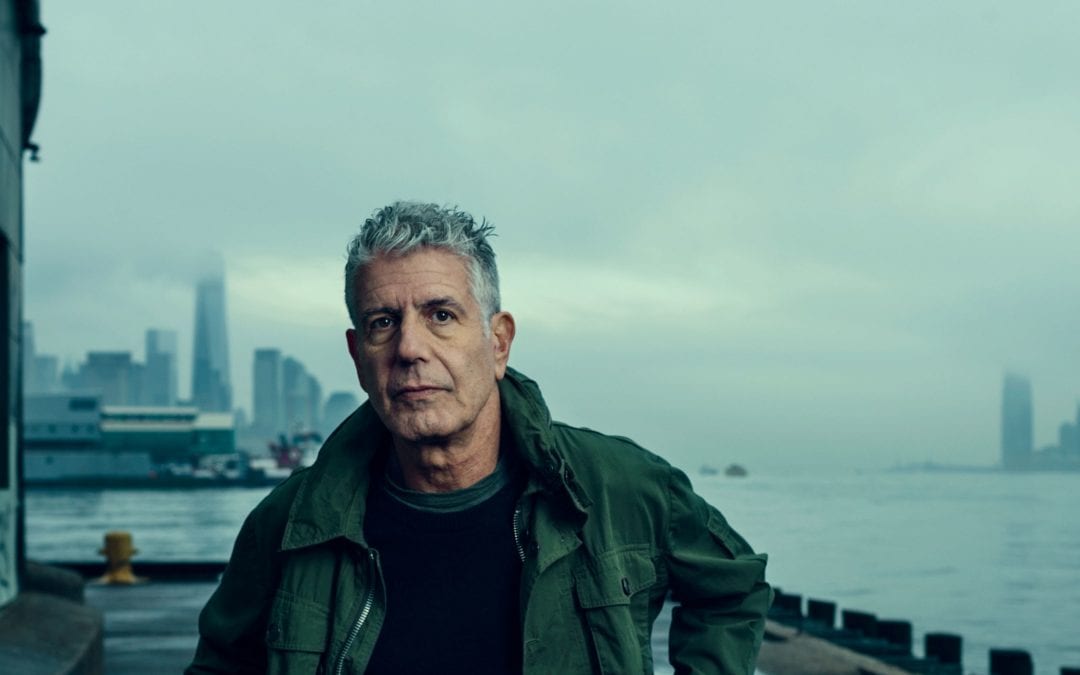By: Conor Bezane
Common people do not have a monopoly on feeling hopeless and suicidal. It can happen to anyone, including celebrities.
When a depressed Sinéad O’Connor sequestered herself in a New Jersey motel room in 2015, crying out for help in a 12-minute YouTube video, it was out of desperation. But the reactions from people on the internet were extreme.
One comment on Facebook read:
“Suck it up, Lady!!! Don’t bring “US” into your sad little world. Go back home and spend your money in the PUB!!! and you know what, buy them a round for God’s sake.”
Just because someone may be rich and famous doesn’t mean they are at fault for not spending money on treatment to feel better. O’Connor was diagnosed bipolar and revealed her status to Oprah in 2007. However, she found out later, her true diagnosis was PTSD and depression.
Hopelessness is a heavyweight predicament for anyone, and it is difficult for anyone to ask for help — that includes celebrities.
Were Anthony Bourdain and Kate Spade not entitled to feel powerless merely because they were celebrities? It’s a cliché, but celebrities are people, too. And Bourdain and Spade, while not bipolar, struggled just as much as we who are bipolar struggle.
Bourdain had it all: a successful docu-series on CNN, bestselling books, a couple of revered restaurants. But depression knows no boundaries. And Bourdain took his life despite his successes.
In fact, we never know what’s under the covers when it comes to anyone, let alone celebrities who keep their private lives under wraps.
Kate Spade’s death by suicide came as a shocker. Who knew the iconic handbag designer with more than 175 stores internationally was in so much agony?
Yet, some cried foul about these two celebrities, whose deaths occurred within a span of one week.
If they were at the top of their game creatively, financially, and sensibly, posited some insensitive yet vocal internet trolls, how dare they take their own lives? They had the money to seek treatment. They had many people in their lives to confide in. They had the wherewithal to check themselves into a psychiatric hospital or rehab and not have to worry about the cost of it.
But they didn’t. They died by suicide. And many people thought it was shameful and selfish.
Even Mariah Carey was not immune from personal attack when she came out as bipolar. “Mariah is full of s— and drugs,” one Facebook comment read. “I cannot stand that woman, now I know why,” read another.
Celebrities deal with the pressure of having to be ON all the time. Especially comedians like Robin Williams, who was also bipolar and died of suicide. We only see them in the public eye and don’t know what’s going on behind the scenes.
In the case of Mariah, she suffers from bipolar II and continues to be a one-woman hit factory, singing her way to the top of the charts ever since her self-titled debut in 1990.
Mariah came out gracefully in an interview with People magazine. She made the rounds in the press, busting stigma and obliterating misconceptions.
One commenter on Facebook believed that Carey could never be bipolar because her career is thriving.
“Bipolar ppl aren’t like Mariah Carey, I can assure you that,” read that comment.
This comment assumes that bipolar people cannot function like the “normies.” On the contrary, there are many stripes on the spectrum of bipolar and many people can — and do — work full-time jobs and operate “normally.” And “normal” is also subjective.
Kanye West released an album this summer called “I Hate Being Bi-polar [sic]. It’s Awesome!,” making light of the seriousness of mental illness and declaring bipolar to be his superpower. He was the anti-Mariah.
Kurt Cobain is not a good role model, given his addiction to heroin and subsequent suicide. But when I found out he was bipolar, it solidified Nirvana’s status as my favorite band. I knew there was a reason I could understand Cobain’s sometimes nonsensical lyrics. In a way, he was a role model for me because, like me, he was bipolar I and obviously obsessed with music. His story is a cautionary tale.
While some of us can’t work because of rapid-cycling bipolar or extreme anxiety or panic disorder and do need disability benefits, there are some who have the capacity to seize the day almost every day and work successfully.
Some of us, especially those with bipolar II, deal with smaller bouts of depression and don’t have the hallucinations and psychosis that come with the mania of being bipolar I. Those with bipolar II have hypomania, a lesser degree of mania that is like a euphoria without the odd behavior that can come with full-blown mania.
As we all know, every person is different. I’m bipolar I, but I continue to write every day, minus some days when I don’t feel up to it because of a bad mental health day or a depressive episode.
But celebrities are just as entitled to bad mental health days as I am, and if they have suicidal tendencies, they are not selfish, they are merely human.

